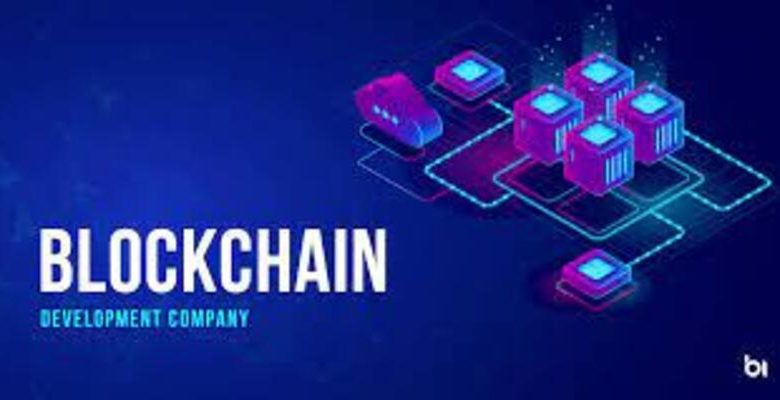
The Top 5 Blockchain Platforms for Starting a New Project
As the upcoming, revolutionary solution to simplify trade procedures, improve product traceability, and optimize supply chains, blockchain technology, and blockchain initiatives have seen a significant increase in interest. The financial patterns surrounding Bitcoin and other cryptocurrencies are largely to blame for this interest.
The younger Blockchain Development companies like Ethereum, Cardano, and XRP have been developed to help overcome these restrictions and provide useful value for other business uses and applications, even though Bitcoin is an older Blockchain Development Company that faces many difficulties, such as energy consumption and transaction speed. Many intriguing layer-1 solutions, including Ethereum, Binance Smart Chain, Cardano, Solana, Polkadot, and EOS, have been deployed in recent years. Other layer-2 solutions, like Polygon (Matic), Elrond, and Lightning, confirm transactions more quickly and inexpensively than layer-1 blockchain networks. Before they begin working with a chosen blockchain development company partner to construct their software project, startup entrepreneurs now have a wide range of options to consider.
However, each blockchain has unique capabilities and services to offer. Let’s then examine them in more detail in order to comprehend some of their technical and commercial elements.
Ethereum:
One of the first and most established blockchain technologies, Ethereum was unveiled in 2013. Additionally, it has a vibrant development community run by the Enterprise Ethereum Alliance, a group of over 250 companies that includes Intel, JPMorgan, and Microsoft.
Participants can do business with one another using smart contracts without the need for a reliable central authority. Participants have complete ownership and visibility over transaction data since transaction records are immutable, verifiable, and securely distributed across the network. Ethereum accounts that users have created both send and receive transactions. As a cost of processing transactions on the network, a sender must sign transactions and use Ether, Ethereum’s native coin.
Ethereum’s:
the main advantage over other platforms is that it supports smart contracts, allowing for real decentralization; nevertheless, it also has several significant disadvantages, including slow processing times and increased transaction processing costs. Along with serving as a Blockchain Development Company for business applications, it also features its own coin called ether.
Although many observers anticipate this to change after Ethereum adopts a more effective security mechanism in early 2022, rival blockchain networks may currently execute transactions considerably faster and perhaps for less money than Ethereum (Proof of Stake).
Technologists who create decentralized apps, or dApps, on the Ethereum network are widely using the Ethereum platform. Millions of individuals utilize these programs on a global scale. The network effect would make it the preferred platform for Web 3.0, where a number of decentralized applications may one day compete with Big Tech’s products.
Cardano:
It is open-source and decentralized, and proof of stake is used to create consensus. With the use of its internal cryptocurrency, Ada, it is able to facilitate peer-to-peer transactions.
Charles Hoskinson, a co-founder of Ethereum, established Cardano in 2015. The Cardano Foundation, situated in Zug, Switzerland, supervises and manages the project’s development. It integrates cutting-edge technologies to give decentralized applications, systems, and society unmatched security and sustainability.
The connection establishes a longer connection between blockchain networks, enabling token transfers between them.
Charles Huskinson, the founder of Cardano, claims that after the formal introduction of Smart Contracts (09.2021), the Cardano network began processing the deployment of more than 200 DeFi projects, which he predicts will result in the development of an entirely new ecosystem in the field.
Polkadot:
A blockchain called Polkadot makes it possible for different blockchain ecosystems or networks to communicate with one another. It sort of connects the two.
The Web3 Foundation is a Swiss foundation (founders: Robert Habermeier, Dr. Gavin Wood, Peter Czaban).
Protecting users’ data from any central authority. Its flagship project, Polkadot, is a blockchain technology for the next generation. By facilitating smooth interoperability across them, it seeks to deliver genuine interoperability to the whole network of purpose-built blockchains. Polkadot intends to make it possible for a completely decentralized network by making it simple to transfer any kind of data between any kind of blockchain. Additionally, it promises to give the most advanced security, scalability, and innovation during the process.
Why is there so much anticipation for the Polkadot network? The web is centralized in its current state. It can become decentralized thanks to blockchain technology, however, legacy blockchain networks are not interoperable. The next-generation Blockchain called Polkadot aims to create a fully decentralized online.
Solana:
Solana was created primarily to support decentralized applications. It resembles popular dApp blockchains like Cardano and Ethereum.
But the Solana Foundation, based in Geneva, is currently in charge of the open-source project Solana. Developers at Solana Labs in San Francisco created the blockchain. Solana has gained popularity by providing speedier operation and reduced transaction fees, which the Ethereum blockchain has so far been unable to offer.
Solana is a PoS (proof of stake) blockchain as opposed to Ethereum, making it less harmful to the environment than Ethereum and other prominent PoW (proof of work) blockchains. It has the ticker SOL and a naive coin named Solana.
A number of the largest cryptocurrency investors, including Alameda Research, Andreessen Horowitz, and Polychain, are also supporting the Solana project. Additionally, Solana charges fewer transaction costs than the majority of its rivals.
According to several market analysts, Solana is just starting its growth cycle and might eventually match Ethereum in terms of price and market worth in the coming years.
Summary:
The blockchain industry is experiencing a rapid pace of innovation with the emergence of new platforms. Extra new features, and new releases. Ambitious businesses are racing to capitalize on the disruptive potential of this technology. So don’t pass up the chance; if you have an idea for a software product, the moment to take action may be now. If you need assistance launching your startup on the blockchain, look at our blockchain development services and get in touch with us.



